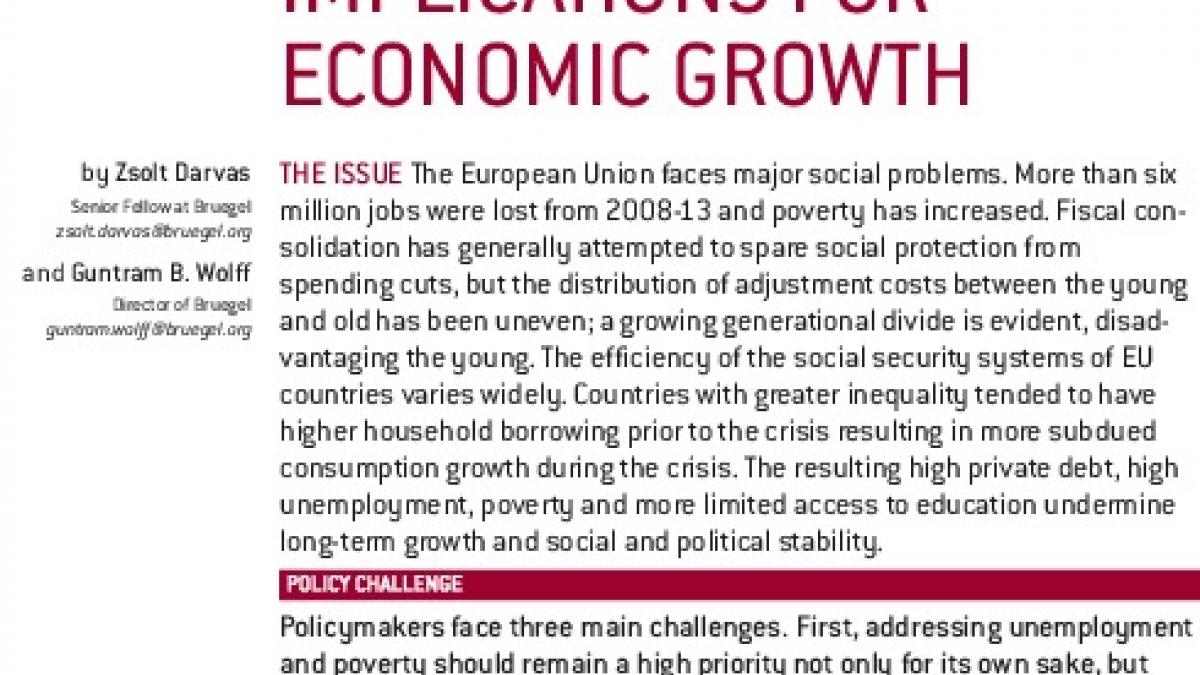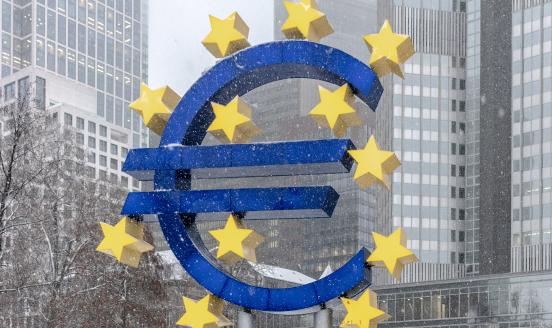Europe's social problem and its implications for economic growth
The European Union faces major social problems. More than six million jobs were lost from 2008-13 and poverty has increased. Fiscal consolidation has

See also comment 'Interactive map: Europe’s social polarisation and the generational struggle'
The European Union faces major social problems. More than six million jobs were lost from 2008-13 and poverty has increased. Fiscal consolidation has generally attempted to spare social protection from spending cuts, but the distribution of adjustment costs between the young and old has been uneven; a growing generational divide is evident, disadvantaging the young. The efficiency of the social security systems of EU countries varies widely. Countries with greater inequality tended to have higher household borrowing prior to the crisis resulting in more subdued consumption growth during the crisis. The resulting high private debt, high unemployment, poverty and more limited access to education undermine long-term growth and social and political stability.
Policymakers face three main challenges. First, addressing unemployment and poverty should remain a high priority not only for its own sake, but because these problems undermine public debt sustainability and growth. Second, bold policies in various areas are required. Most labour, social and fiscal policies are the responsibility of member states, requiring national reforms. But better coordination of demand management at European level is also necessary in order to create jobs. Third, tax/benefit systems should be reviewed for improved efficiency, inter- generational equity and fair burden sharing between the wealthy and poor.



